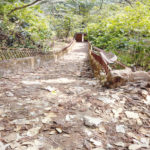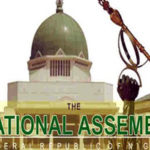This is just as the Council said they were collating a list of all seed and input dealers and will soon publish a list of all approved and accredited dealers from where farmers can buy their quality seeds.
Addressing Journalists in Abuja, the Director General of NASC, Dr Philip Ojo said: “I encourage our dear farmers, as they prepare to establish their fields, to do things differently this year to ensure a bumper yield. Please, use only seeds from accredited sources if you must produce.
“The Council will be available to support your farming work through our contact centre/farmers helpline we are about to launch. This helpline will afford farmers access to us for firsthand information on seed and other needs. Please reach out to us through our website www.seedcouncil.gov.ng.
Farmers can get technical support and feedbacks on any anomalies they encounter in the use of seeds bought from accredited dealers”.
Furthermore, Dr Ojo, said “It is illegal for anyone anywhere to sell or market seeds in open containers, or with false labels, or fake seeds in our markets. Our farmers also need to stop patronising these open markets for seeds.
“Just as it is against the law for anyone to organise a protest without the permit of the police,it is also a contravention of NASC Act No 72 of 1992 to organise production, distribution or marketing of seeds without the NASC accreditation or permission.
“Government and non-governmental agencies are hereby informed that the ‘National Agricultural Seeds Act, NO. 72 of 1992 and other related matters,’ in force, applies to activities relating to seeds and planting materials. These include seed production, distribution, quality control, certification as well as marketing of seeds and planting materials) and the ECOWAS Harmonised Seed Rules and Regulations.
“The sole purpose of these laws is to regulate the production, marketing, trade and use of seeds in Nigeria. NASC has the mandate of implementing the provisions of these laws.
“Let me emphasise that no one, whether a government agency, private, non-governmental, donor or individual, is permitted to do any form of activity or business relating to seed without the notification of the NASC.
The NASC DG further said that “In recent past, many agencies with genuine intentions of assisting the farmers and making Nigeria food secure have engaged in series of activities on seeds without the collaboration of NASC”.
According to him, “these actions have resulted in the distortion rather than positively impacting the seed system, thereby permitting some unscrupulous people to hijack the process and defraud our dear farmers.
“Against this background, henceforth, all agencies that must engage in seed activities at the federal, state and local government levels must get NASC clearance before commencing such activities. This directive applies to all international support agencies who, at various times and from various sources, procure seeds using their international procurement criteria without recourse to the laws of Nigeria.
On Seed importation, Dr Ojo said “we have also noticed that a lot of poor quality seeds are imported into this country through our borders without proper clearance and declaration to the Seeds Council.
“To this end, we will partner with all relevant government agencies, including the Nigerian Agricultural Quarantine Service (NAQS) and the Customs, in coordinating the importation of vegetable seed into Nigeria for traceability and quality assurance purposes. We are aware that, currently, a lot of entrepreneurs bringing in and marketing vegetable seeds to farmers do so without accreditation with the NASC.
“We are thus calling on all such organisations or persons to come out and properly legalise their businesses before we come to them with the full force of the law as doing seed business without necessary permit in contravention of the Seed Act”.
We hereby implore Nigerian farmers not to lose hope or relent concerning buying seeds from recognised sources as the Council is better positioned to ensure that what they purchase gives them value for their money.
Addressing the famers on how to know good seeds, Dr Ojo said “as we approach the cropping season and farmers are looking for quality inputs for their planting, please, look out for the following signs. Ensure that the bag of seeds has a blue tag of the National Agricultural Seed Council NASC.
“The tag should bear the date the seed was tested by NASC. The lot number on the label shows the month and year the seed was produced and the name of the producer. The label should further indicate the germination capacity and purity of the seed which is normally above 90 percent.
“Also important is the seed producer’s label which is branded in different colours by individual companies with clear details of the company and other information relating to additional treatments the seeds may have been subjected to.
“The farmer should check that the seeds in the bag are uniform in shape and size. The seed bag should not carry any foreign matter apart from the seed itself. Most importantly, farmers should buy seeds from dealers who have clear and traceable address and ask for a receipt upon the purchase of the seed. A Cash receipt helps the customer to claim his money back if the goods purchased are defective. Similarly, a farmer would be able to trace the dealer who sold him fake seeds and demand for the refund.?
“Stakeholders sourcing for seeds in the market and come across seeds displayed for sales that do not carry the above mentioned information and attributes should report to the nearest NASC office or contact us through the NASC Helpline for immediate action as NASC is empowered by the law to prosecute people who engages in seed business without requisite accreditation and approval”.






